UNFORGIVEN Explained: A World that Does Not Forgive
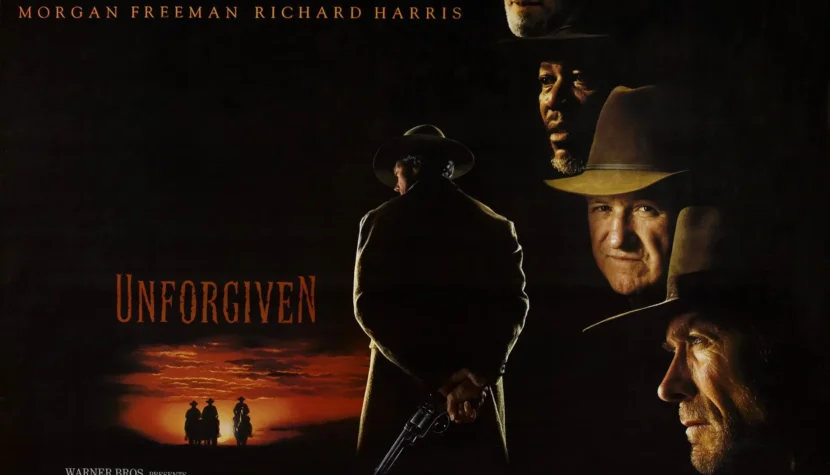
He never hesitated before he pulled the trigger. And shooting was a talent he possessed, unlike his failed attempts at raising pigs. The second knew the first during the worst and most infamous of times. With a weapon that now hangs like a relic above the front door, he could hit the eye of a flying bird. The third is intoxicated and blinded by power. He hides the features of a tyrant behind the mask of an ironist and a mocker. In his domain, he is an absolute ruler, though a lousy carpenter. William Munny. Ned Logan. Bill Daggett.
There are also them, the whores from the tavern. Their lives are miserable and wretched, spent waiting for stinking, drunken clients who, by throwing a few pennies for a moment of forbidden pleasure, ensure that they remain useful for a while longer, that no one throws them out on the street. And that one who laughed at the wrong moment, for which a cowboy, insulted in his masculinity, disfigured her forever. No one will provide justice for trash like her; no one will punish a man who regularly pays at the bar and has good relations with the sheriff. Justice can only be claimed by themselves. And they are certain: the punishment must be death. To whoever enacts this punishment, they are ready to pay well. Unforgiven.
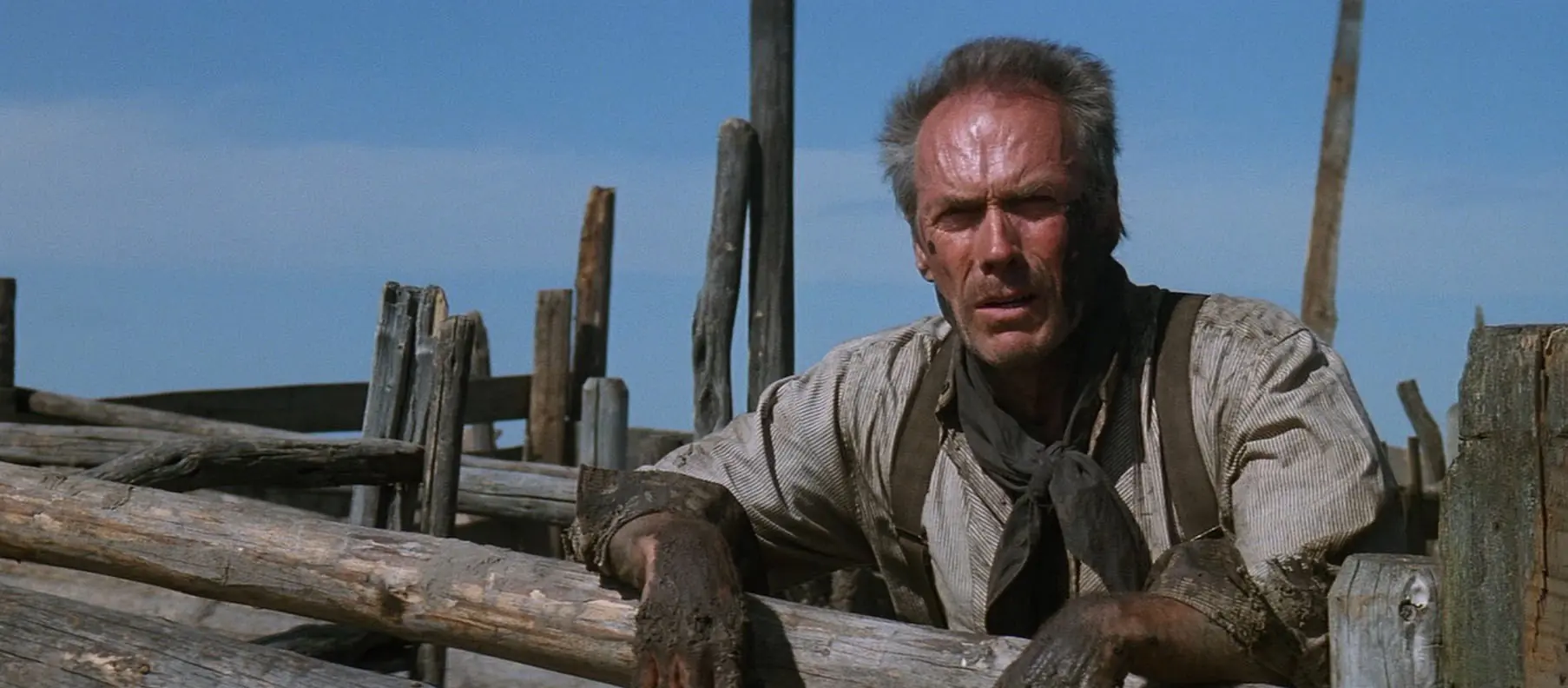
For William Munny, such contracts were once an everyday occurrence. He was born for his trade, though he didn’t embrace it. In the fumes of alcohol, he concealed not so much shame or remorse as the cold satisfaction of a professional who knows he does what he does well, who understands that he can do nothing else, but who is haunted by the sense that somewhere in his reasoning, there is a mistake.
When he meets a woman who wishes to marry him despite what he was, he believes he has found redemption. He thinks to himself: I have changed, so I will atone to God, the world, and myself for all the evil I caused—for money, ambition, or perhaps even just for the thrill. He believes he can do this as a father, a husband, a farmer. He believes that through this, he will become different, better, whole. Redeemed. That he will learn to forgive and that he will be forgiven.
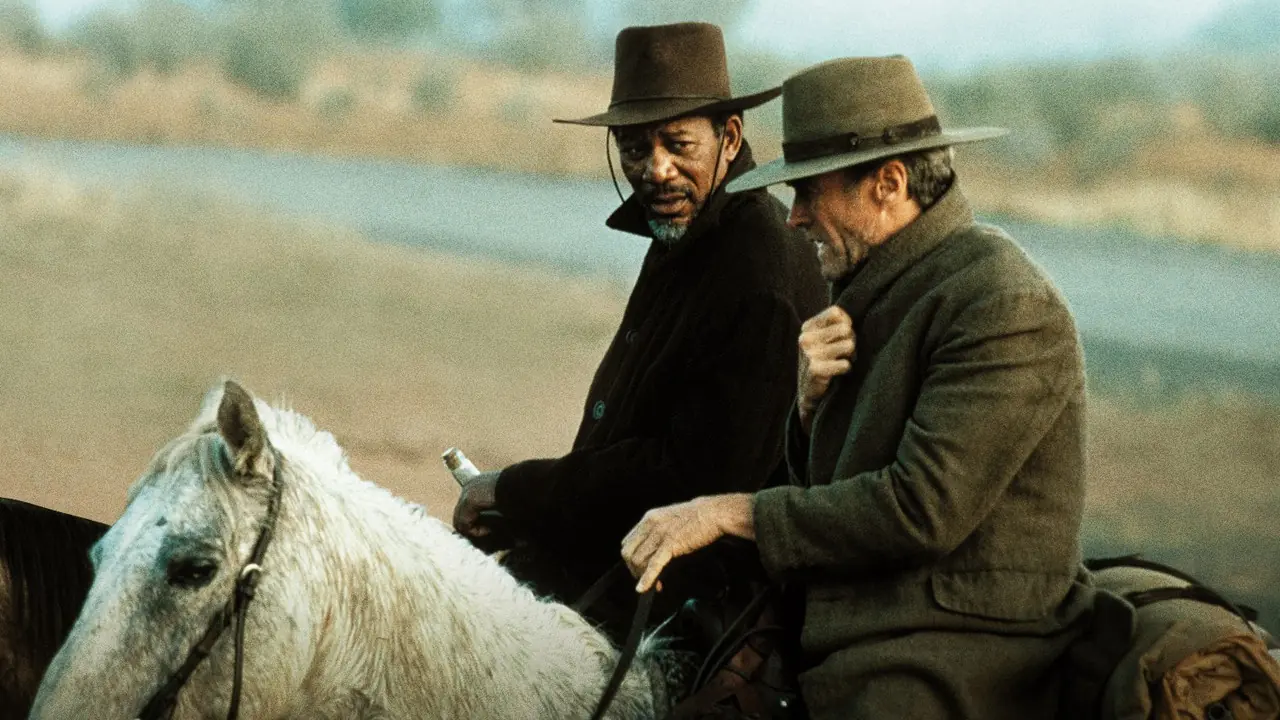
However, forgiveness, both the one you can give and the one you can receive, is measured by the person you are, not the person you wish to become. William loses his wife, who dies of smallpox. He is left alone with two children. He cannot manage raising pigs, which die from a mysterious disease he cannot cure. Even his own horse does not trust him. William thinks, This is punishment.
Ned Logan, William’s friend and companion from those old outlaw days, thinks differently. Yes, he too has laid down his weapons. Yes, he is a settled farmer. But he doesn’t deny his past. On the contrary, he takes pride in having been a skilled shooter. That gun on the wall is a symbol of the effectiveness and strength he once possessed. He nurtures the belief that at any moment, if he wishes, he can take it down, load it, and shoot with ease. Why should he be ashamed of who he is? Why should he deny it or pretend otherwise? Forgetting himself would be dishonest. He would be a traitor. And yet, soon it will become clear how wrong both of them were. William, who believed he had changed, in truth, had not changed at all. Ned, confident in the constancy of his hardened nature, had unknowingly changed completely.
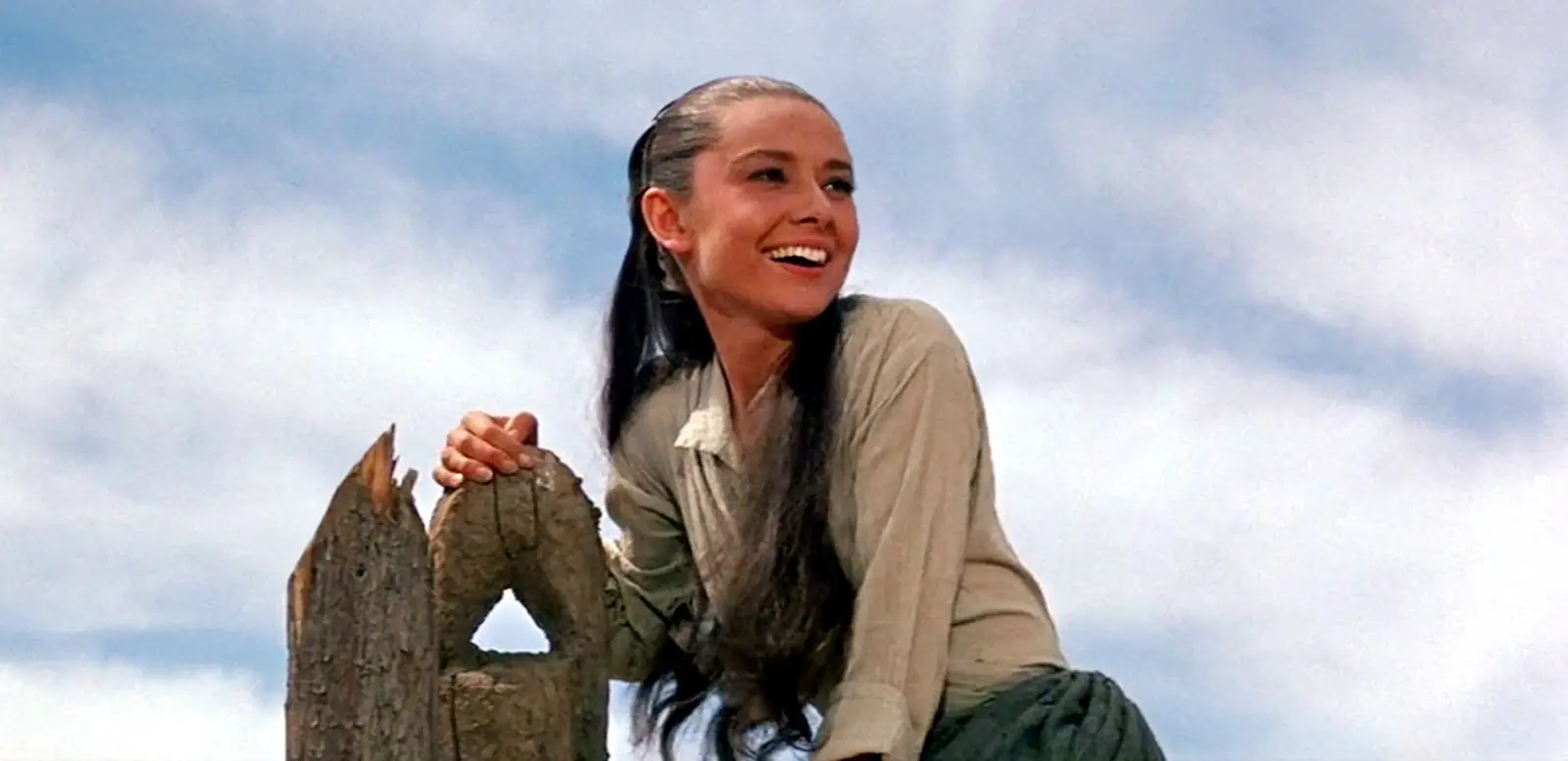
Unlike them, Bill Daggett is at the peak of his form and harbors no doubts. He is a textbook example of a man so sure of his invulnerability and omnipotence that he believes he needs no one. If he wants loyalty, he will secure it with force and threats. He will not hesitate to destroy a legend, strip away hope, humiliate, and ridicule. He kicks those who are down, both literally and figuratively. When he systematically, step by step, destroys English Bob, he takes everything from him. He delights in witnessing the downfall of a man who had little to begin with: a myth, embellished tales, and the stubborn clinging to the remnants of personal dignity. In stripping away dignity, Bill is a master. He finds joy in it, and therein lies the core of his sadism—not in the crimes he commits, nor in the pain he inflicts. He fully understands how the cruel game of cat and mouse can destroy a man. He does it simply for entertainment.
His town is a town of order, bearing his name. A town of law, but it is his law. How proud he is of it, how satisfied with himself. And yet, somewhere deep down, subconsciously, he fears ridicule. He fears that he could end up like Bob—humiliated, crushed. Better not to mock him. For mockery, you can pay with your life. This is the best proof of how small a man he truly is. And, as small people often do, he takes his long shadow as the measure of his greatness.
Sometimes it’s just that—you have to come to terms with who you are.
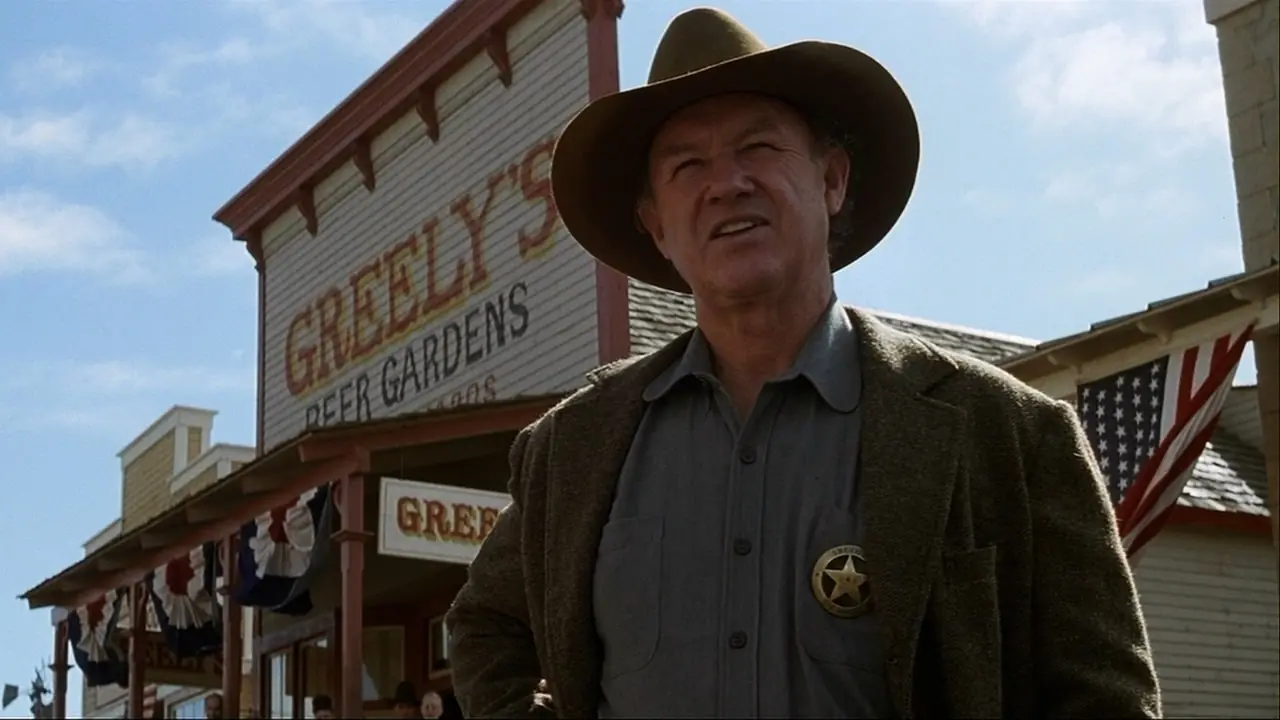
Accept it without regret, even if it brings you pain. That young boy, who discovers he does not want to become another William Munny, who understands he will not be able to kill, is a reward and a hope. Perhaps that is the forgiveness you will never receive because you were made the way you are. The paradox of William’s redemption lies in the fact that, to achieve it, he must kill. He must kill one more time to truly stop killing. Yet he will do it in the name of values he once forgot, which caused him unending torment. And if he must kill one more time for those values, he will. Because he now knows who he is. He knows that he must be that way. He knows he cannot deny it. And that, though brutal, is right. We’ll meet in hell? Fine, then we’ll meet in hell. But you’ll get there before me. And merits truly don’t matter here.
There’s a certain folk legend that says some people are followed by the angel of death from the moment they are born. If that’s true, William Munny was surely one of them. In his fever, he even saw that angel leaning over him. And perhaps it’s for the fact that, at the crucial moment, he did not forgive—that he will be forgiven.

Bill Daggett, on the other hand, will die in the exact way he never wanted to die. Humiliated, defeated. Like any ordinary man. Like anyone. In his moment of death, he is as wretched and weak as anyone else. Astonished—How? Me? Where is my strength, where is my power, where are they when I need them most?
All of them are bound by the harsh laws and hard rules of a world that does not forgive. This world will not forgive Logan for showing weakness and failing to kill, even though he chose to take up a gun. It will not forgive Munny for still being who he is and will compel him to administer justice in the form he tried so hard to forget, unsuccessfully. It will not forgive Daggett for wanting to rule and control this world unchallenged. When you start the game, you must play it to the end. They have all been marked. Called out and summoned to the ring. They could have quit at the start, as Schofield did. But they didn’t. And so, they must stay in it—without forgiveness—forever.

